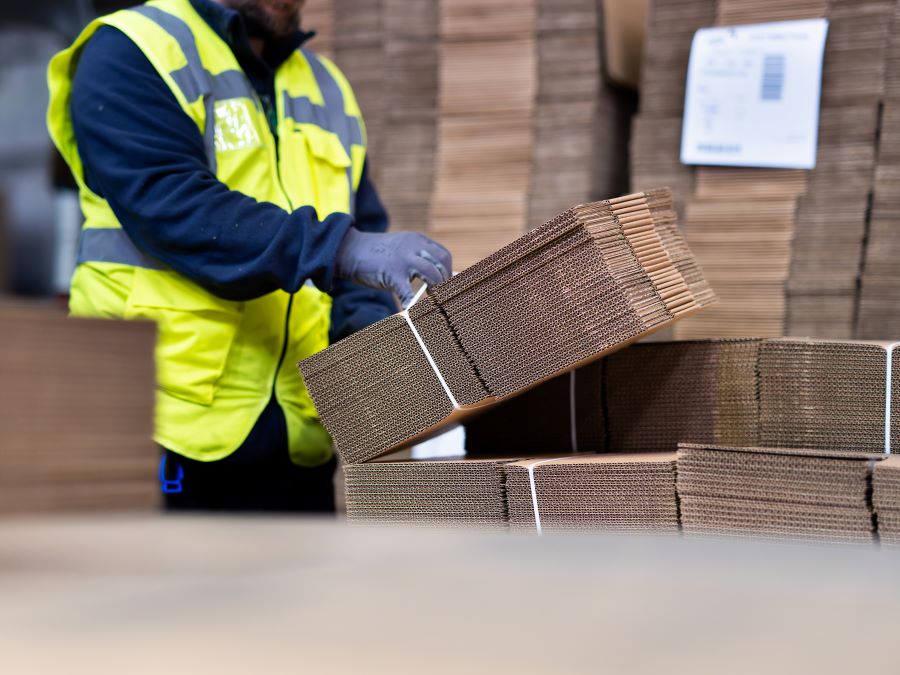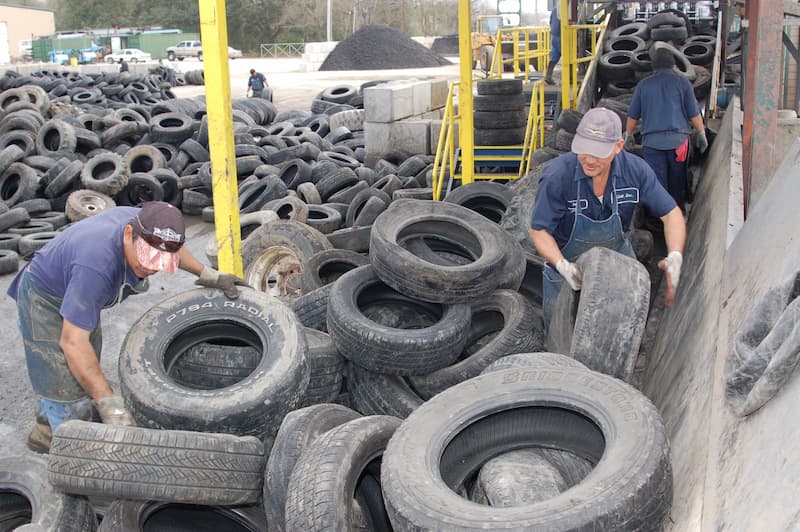Commodities
Whether you realize it or not, recycled materials are a big part of life. They help make items that you use and depend on every day. From the wiring and plumbing in your home, to the coffee maker that gets your day started. From the roads, bridges, and highways you travel on, to the schools our children learn in – maybe even the laptop or smartphone you’re reading this on. They all likely contain recycled material.

Recycled materials
Uses of Recycled Commodities
Recycled materials provide a renewable source of high-quality materials for everyday items you rely on, as well as the essential infrastructure that keeps communities running. Each new, useful object that’s made from recycled material saves natural resources and reduces waste.

Construction, Automaking, & Appliances
The U.S. steel industry relies on recycled steel as its largest single raw material input. Ninety percent of the structural steel used in buildings like hospitals or structures like bridges is recycled steel. Learn more about ferrous metals, including iron and steel.
Ferrous Recycling

Paper Products
More than 75 percent of U.S. paper mills depend on recovered fiber from recycling operations for daily production needs. Find out how recycled paper is a part of your daily routine.
paper Recycling

Digital Age
According to Apple, the iPhone 16 contains more than 30 percent recycled material. Learn more about the impact of recycled electronics.
Electronics

The Beverage Industry
More than half of all aluminum consumption by manufacturers in the United States comes from recycled commodities. Get to know aluminum and other nonferrous metals.
Non-ferrous metal Recycling

Plastics Packaging
Recycled plastic uses 88 percent less energy than sourcing new plastic from primary materials. Find out more about recycled plastics.
Plastic Recycling

Glass Half Full
Glass is 100 percent recyclable and can be recycled endlessly without losing quality. Learn more about the benefits of recycled glass.
Glass Recycling

Rubber Meets the Road
The smooth road you drive on is thanks to asphalt made with recycled tires. Understand the benefits of recycled rubber
Tire & Rubber Recycling

New Life to Old Garments
Many cars use recycled clothes as sound insulation, keeping your drive quiet. Discover more about the impact of recycled textiles
Textile Recycling
Our Industry, Our Impact
Driving Economic Growth, Sustainability, and Innovation
The recycled materials industry powers a resilient, sustainable future—fueling the economy, protecting the environment, advocating for smart policies, and supporting a skilled, safety-focused workforce.

Economic Impact
Recycled materials are resilient, strengthening the economy. Explore the industry’s economic benefits.

Our Impact
The recycled materials industry provides a renewable, resilient source of raw materials for manufacturing, and we’re constantly growing and evolving to better impact and serve the world around us.



Environment & Sustainability
Recycling protects natural resources through sustainable alternatives, creating less dependence on scarce resources.

Advocacy
ReMA’s advocacy efforts highlight the role of recycled materials in our economy, environment, supply chain, and beyond, at all levels of government.

Safety & Compliance
Safety is ReMA’s number one core value. We offer a variety of industry safety services including in-person and virtual options.

Workforce Management
A diverse, qualified workforce is key to success. ReMA’s workforce development resources help recruit people into exciting careers in the recycled materials industry.
